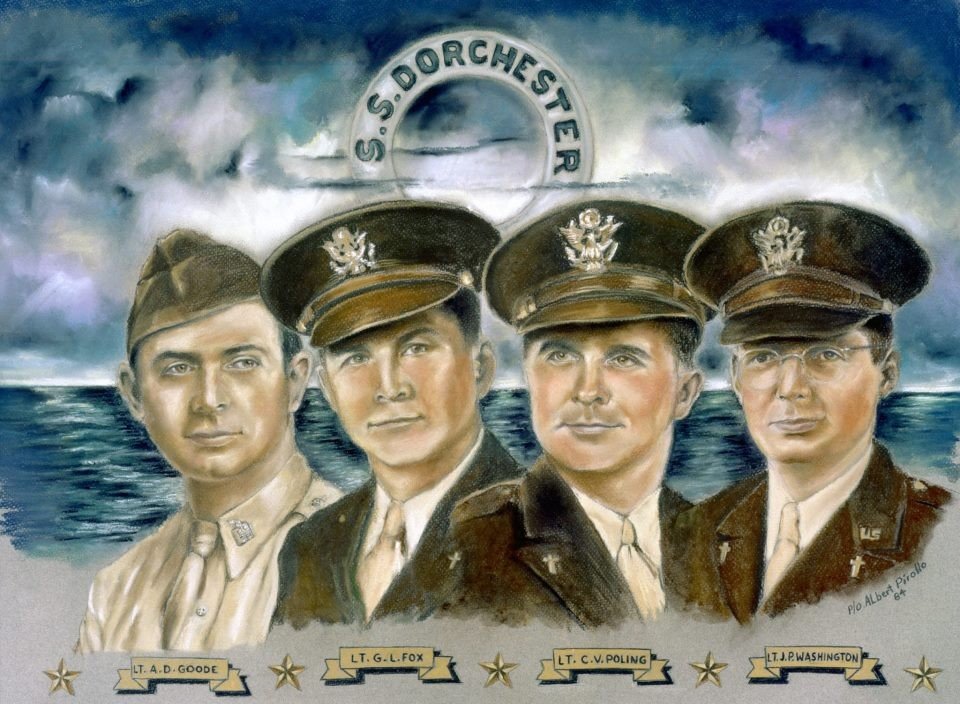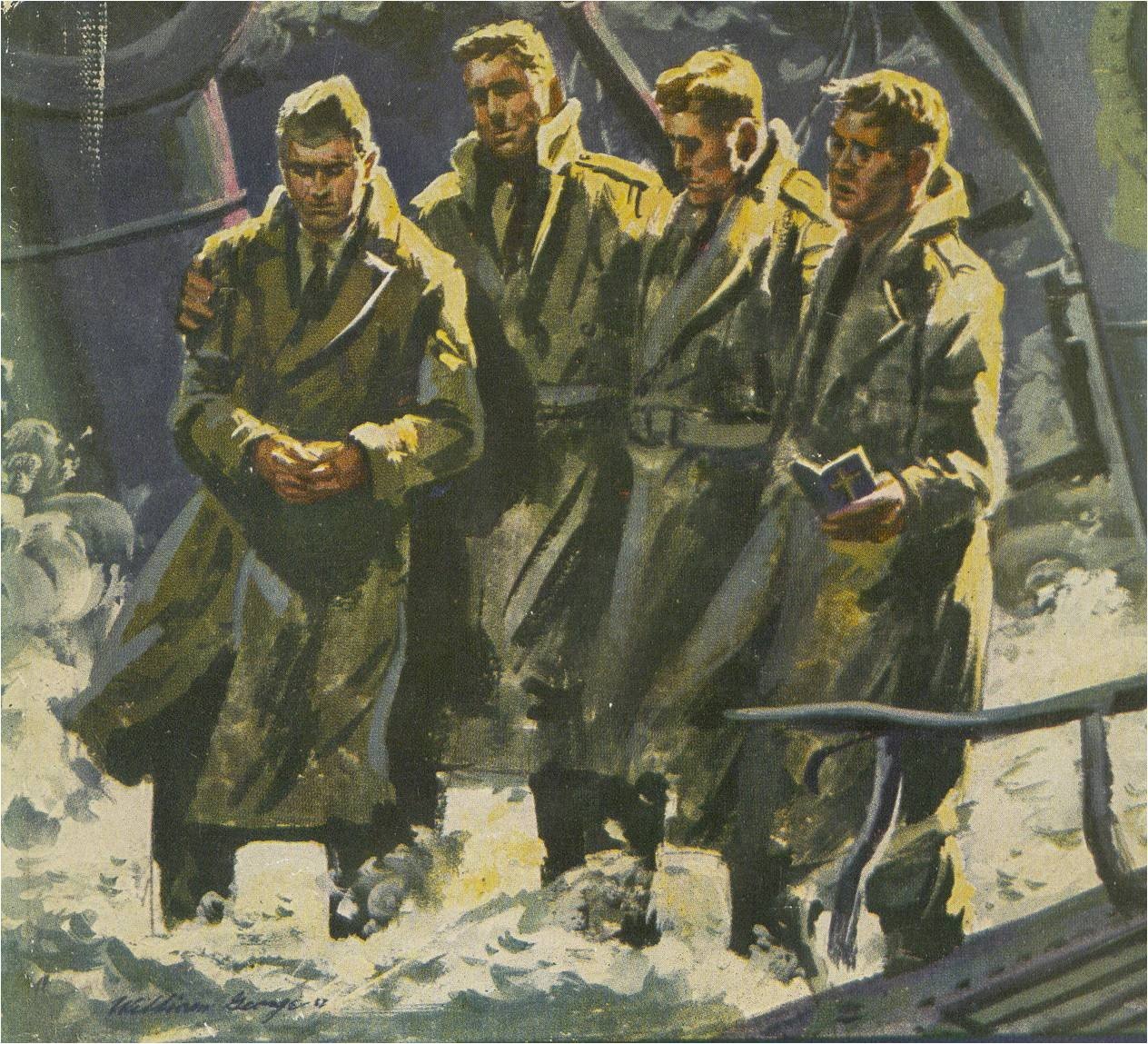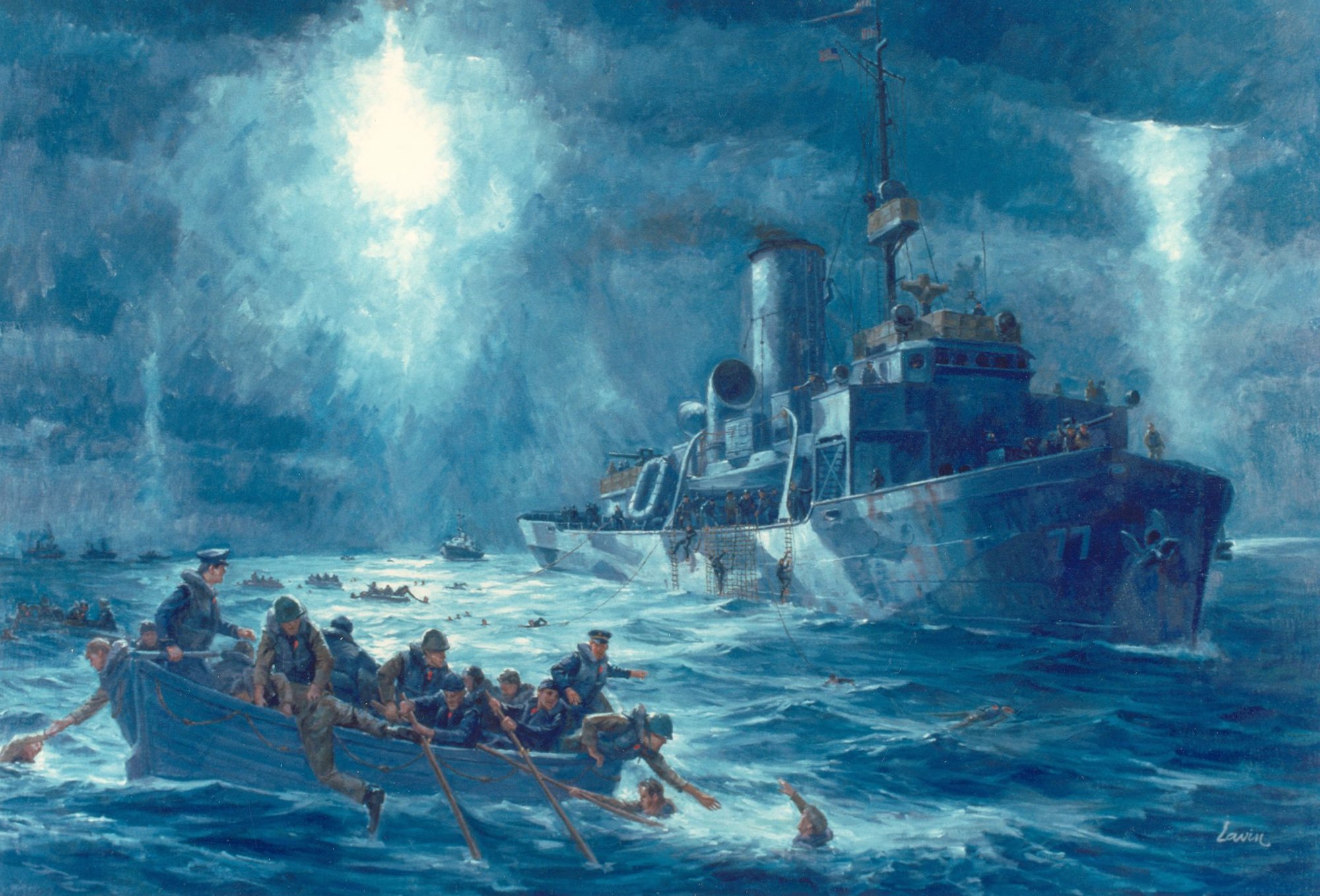The Heroic Four Chaplains of World War II Who Sacrificed Themselves for Others

“The night was cold and black and the ears of the men were still ringing from the sudden explosion of the torpedo,” the American Weekly magazine wrote about the frantic morning hours of Feb. 3, 1943. “Men and officers of the army and merchant marine milled around the slanting deck of the S.S. Dorchester, terrified and confused. Then the chaplains took over.”
Four US Army chaplains emerged through the thick black smoke and attempted to organize the disoriented service members, civilians, and merchant marines.
Before the chaos, Capt. Hans J. Danielsen had entered “Torpedo Junction” knowing the risks. He had warned that the last 150 miles to their destination in Greenland would be the most dangerous. Danielsen had received information from a sonar-capable US Coast Guard escort vessel that reported German U-boat activity in the area. He ordered everyone on board to wear their life jackets at all times as a precaution. Below deck, however, the heat was unbearable, and the life jackets didn’t seem as important to the seasick passengers as they did topside.

When the torpedo fired by the German U-223 submarine struck the engine room at 12:55 a.m., the blast killed and wounded many of the soldiers immediately. The former luxury liner transformed into a US Army transport ship was crowded to capacity with 902 men and taking on water fast.
Lt. George L. Fox, a World War I veteran of the Western Front who was awarded the Silver Star for rescuing the life of a wounded soldier during a poison gas attack, took charge. The Methodist minister was joined by the Dutch Reformed Church in America Rev. Clark V. Poling, Reform Rabbi Alexander D. Goode, and Father John P. Washington, a Roman Catholic priest — all three lieutenants themselves.
Once topside the chaplains opened a storage locker and handed out life jackets and life belts. When their supply ran out, they took their own life jackets off, instructing four frightened men to put them on instead.
Pvt. William B. Bednar, who was thrown overboard after the blast, struggled through the oil-covered and frigid ocean of the North Atlantic. He watched those on board scramble for their lives while others floated motionless beside him with their faces down in the water. “I could hear men crying, pleading, praying,” Bednar recalled. “I could also hear the chaplains preaching courage. Their voices were the only thing that kept me going.”

The four chaplains assisted with the evacuation of the survivors into lifeboats. Then they linked arms, prayed and sang hymns, and went down with the sinking ship.
Although no mayday was signaled because power to the telegram was disabled and the radio was destroyed, three US Coast Guard cutters — the Tampa, Escanaba, and Comanche — observed the ship’s distress and responded. They were able to rescue 230 survivors while the rest perished.
The courage and sacrifice of the four chaplains of different religions and creeds was honored with four posthumous awards of the Distinguished Service Cross, and each received the Purple Heart. They were recommended for the Medal of Honor but couldn’t receive it because they didn’t meet the stringent requirements for heroism under fire. Instead, Congress authorized a Special Medal for Heroism, The Four Chaplains’ Medal, and it was awarded on Jan. 18, 1961.
The medal was specifically created to honor them and won’t be awarded again. Annually each year, Feb. 3 is celebrated as Four Chaplains Day to remember their self-sacrifice to save others in need.
Read Next:

Matt Fratus is a history staff writer for Coffee or Die. He prides himself on uncovering the most fascinating tales of history by sharing them through any means of engaging storytelling. He writes for his micro-blog @LateNightHistory on Instagram, where he shares the story behind the image. He is also the host of the Late Night History podcast. When not writing about history, Matt enjoys volunteering for One More Wave and rooting for Boston sports teams.
BRCC and Bad Moon Print Press team up for an exclusive, limited-edition T-shirt design!
BRCC partners with Team Room Design for an exclusive T-shirt release!
Thirty Seconds Out has partnered with BRCC for an exclusive shirt design invoking the God of Winter.
Lucas O'Hara of Grizzly Forge has teamed up with BRCC for a badass, exclusive Shirt Club T-shirt design featuring his most popular knife and tiomahawk.
Coffee or Die sits down with one of the graphic designers behind Black Rifle Coffee's signature look and vibe.
Biden will award the Medal of Honor to a Vietnam War Army helicopter pilot who risked his life to save a reconnaissance team from almost certain death.
Ever wonder how much Jack Mandaville would f*ck sh*t up if he went back in time? The American Revolution didn't even see him coming.
A nearly 200-year-old West Point time capsule that at first appeared to yield little more than dust contains hidden treasure, the US Military Academy said.












